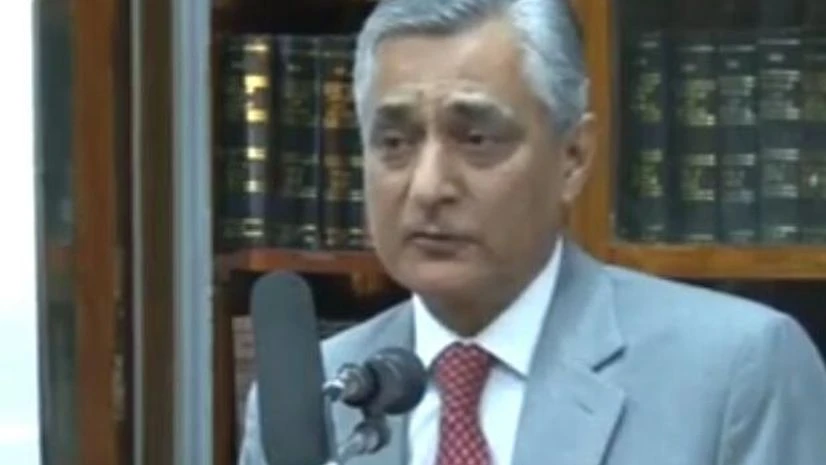Deviant behaviour and corruption by judges would not be tolerated, Chief Justice of India T S Thakur said today while making it clear that benefit of doubt will be given to the institution and not to individuals.
Maintaining that among the top-most challenges for him as the CJI was to maintain the "credibility" of the judiciary, Justice Thakur said "there are some misgivings whether the system is tolerant towards few judges' conduct and deviant behaviour" and this has to be dispelled with.
"Deviant behaviour, bribery and corruption by judges are some of the issues. We will be very intolerant towards deviant behaviour, bribery and corruption," he said in an interaction with the mediapersons here.
Listing out the challenges facing the judiciary, the CJI said "it is not so easy to cleanse the system" but "you can really bring the guilt to home" and "benefit of doubt will be given to institution and not to the individuals."
He said people who are suspect can offer reasoning in their favour.
Asked about the alleged deviant behaviour of Justice C S Karnan of the Madras High Court, Justice Thakur, without naming anybody, said "we will take note of it and take corrective measure. Whoever, he may be. Be it a person from Kashmir or Kanyakumari."
He said in-house procedures were "fairly accurate" but more important was their implementation for dealing with the allegedly errant judges.
On the ongoing controversial issue of collegium system, the CJI was seemingly sceptical about the apex court's Constitution Bench's nod that the collegium can go ahead with appointment of judges in higher judiciary till it delivered its order on the issue of improving the existing mechanism.
"They (Bench) said that the collegium can proceed. They did not say that collegium should proceed. Personally, I would like to wait for the judgement," he said when asked about the high-voltage proceedings on the issue of collegium system and pendency of vacancies.
He also said he would like to know the views of the presiding judges of the bench as to how "I am expected to work on the issue.
Further, Justice Thakur said that arrears of cases was a
problem and there was a need to fix a time-frame for disposal of civil and criminal matters.
He also spoke on the misuse of public interest litigation (PIL), saying judges dealing with PILs have to be extremely careful in seeing that writs are not for personal grievances and scrutinise who is acting as a front for whom to sabotage the "effective weapon" of PIL which is meant for addressing the general grievances.
"PIL is an effective weapon like if you give a knife to a surgeon, he will use it to save several lives. But if the knife is given to a butcher ...," he said, while elaborating the benefit as well as drawbacks of the PILs which in recent times, he felt, have been financed by proxies.

)
